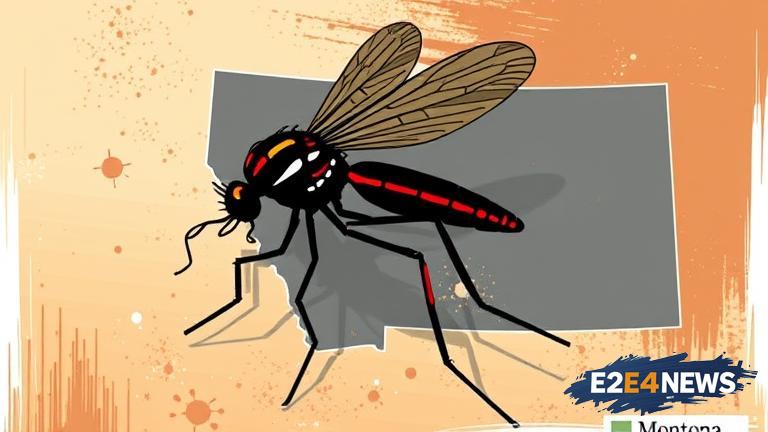The Montana health department has issued a warning to residents regarding the increased risk of West Nile virus in the state. According to recent reports, the risk of contracting the virus has risen significantly, with several cases already reported in the region. The West Nile virus is a mosquito-borne illness that can cause severe symptoms, including fever, headache, and encephalitis. The health department is urging residents to take necessary precautions to prevent mosquito bites, such as wearing protective clothing and applying insect repellent. Residents are also advised to eliminate standing water around their homes, as this can attract mosquitoes and increase the risk of transmission. The health department has reported that the majority of cases have been found in the western part of the state, although the risk is present throughout Montana. The virus is typically spread through the bite of an infected mosquito, and symptoms can range from mild to severe. In some cases, the virus can cause serious neurological symptoms, including meningitis and encephalitis. The health department is working to educate residents on the risks associated with West Nile virus and the importance of taking preventative measures. Residents are encouraged to report any dead birds to the health department, as these can be a sign of the virus. The health department is also conducting surveillance and testing to monitor the spread of the virus. In addition to individual precautions, the health department is working with local communities to implement mosquito control measures. This includes spraying for mosquitoes in areas where the virus has been detected. The health department is also providing guidance to healthcare providers on the diagnosis and treatment of West Nile virus. Residents are advised to seek medical attention immediately if they experience any symptoms of the virus. The health department is emphasizing the importance of taking precautions, especially for vulnerable populations such as the elderly and young children. The West Nile virus season typically runs from July to September, although the risk can persist into the fall. The health department is urging residents to remain vigilant and take necessary precautions to prevent the spread of the virus. By working together, residents and the health department can reduce the risk of West Nile virus transmission and protect public health. The health department will continue to monitor the situation and provide updates as necessary. In the meantime, residents are advised to stay informed and take action to protect themselves and their loved ones. The West Nile virus is a serious public health concern, and it is essential that residents take the necessary precautions to prevent transmission. By taking a proactive approach, residents can help reduce the risk of West Nile virus and protect the health and well-being of their communities.
